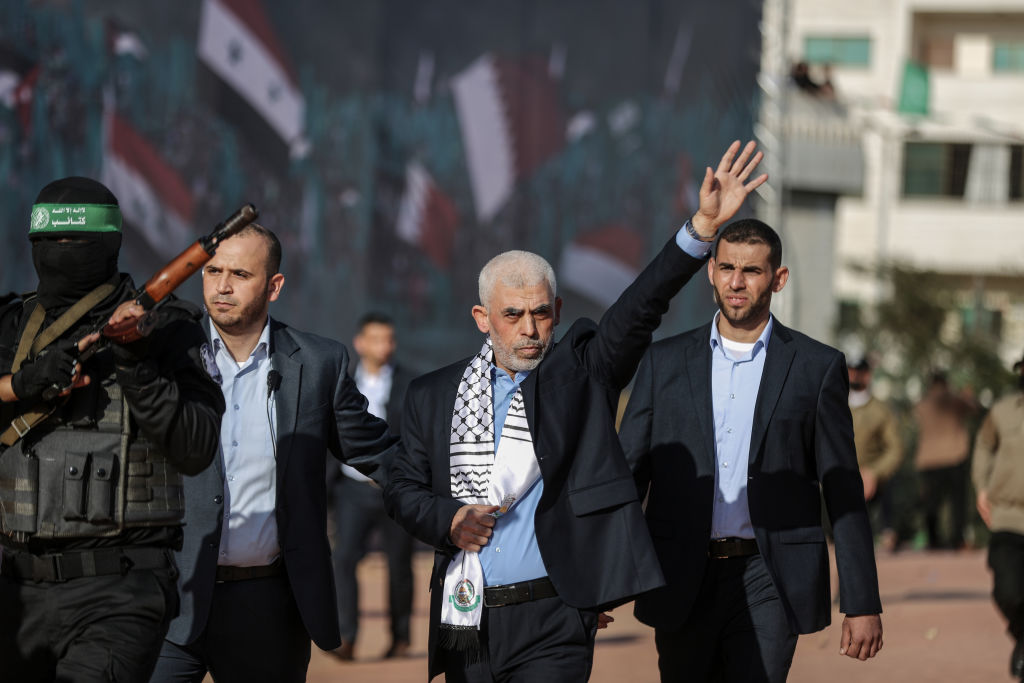Hamas announced yesterday that it had appointed Yahya Sinwar, a man known as the “butcher of Khan Younis”, as the head of its “Political Bureau”. The position has been vacant since Israel’s assassination of Ismail Haniyeh in Tehran on 31 July in the kind of operation that has given Mossad its prestige among the world’s intelligence agencies.
A lot of the media coverage of Sinwar’s appointment has focused on what it means for the possibility of a ceasefire. In truth, it means very little. Sinwar has been the operational leader of Hamas in the Gaza Strip and the man invariably described as the “mastermind” of the pogrom in Israel on 7 October. He shares former Hamas leader Ismail Haniyeh’s view of Palestinian civilians as collateral for the cause, which should come as no surprise since Hamas’ entire war concept is built around a human sacrifice strategy.
Moreover, in command terms, Sinwar was more important than Haniyeh even when the latter was alive. It is Sinwar who blocked all prior ceasefire attempts, not least because any ceasefire deal would involve returning the Israeli hostages and Sinwar’s life depends on the hostages he has surrounded himself with. Haniyeh and others responsible for 7 October who did not have such human shields — notably Saleh al-Arouri, the deputy of Hamas’ Political Bureau, the military commander in the West Bank, and Mohammed Deif, the Hamas commander-in-chief in Gaza — are all dead now.
Sinwar taking over the Political Bureau is not a last-man-standing default choice, however. Hamas could easily have reappointed Khaled Meshal or chosen another official based in Qatar. Sinwar’s appointment signals that Hamas is dispensing with the pretence that there is a division between its “political” and “military” wings, and that, whatever the complications of the organisation’s history, it functions now as a unit of Iran’s Islamic Revolutionary Guards Corps (IRGC).
For anyone who wished to see, these facts have long been self-evident — note that al-Arouri simultaneously held “political” and “military” roles, and Sinwar has been an Iranian agent for years, as is true of the other actual powerbrokers in Hamas. Now these facts are undeniable.
To call Sinwar the “mastermind” of the 7 October pogrom rather overstates his role. The idea, planning, training, weapons, decision on the timing, and order for initiation came from Iran. But Sinwar is a loyal soldier in the IRGC’s regional jihad, which will continue until Israel is eradicated or the Islamic Republic falls. With Hamas’ place as one front of that jihad undisguised, the mirage of a negotiated solution can at least be set aside.










Join the discussion
Join like minded readers that support our journalism by becoming a paid subscriber
To join the discussion in the comments, become a paid subscriber.
Join like minded readers that support our journalism, read unlimited articles and enjoy other subscriber-only benefits.
Subscribe